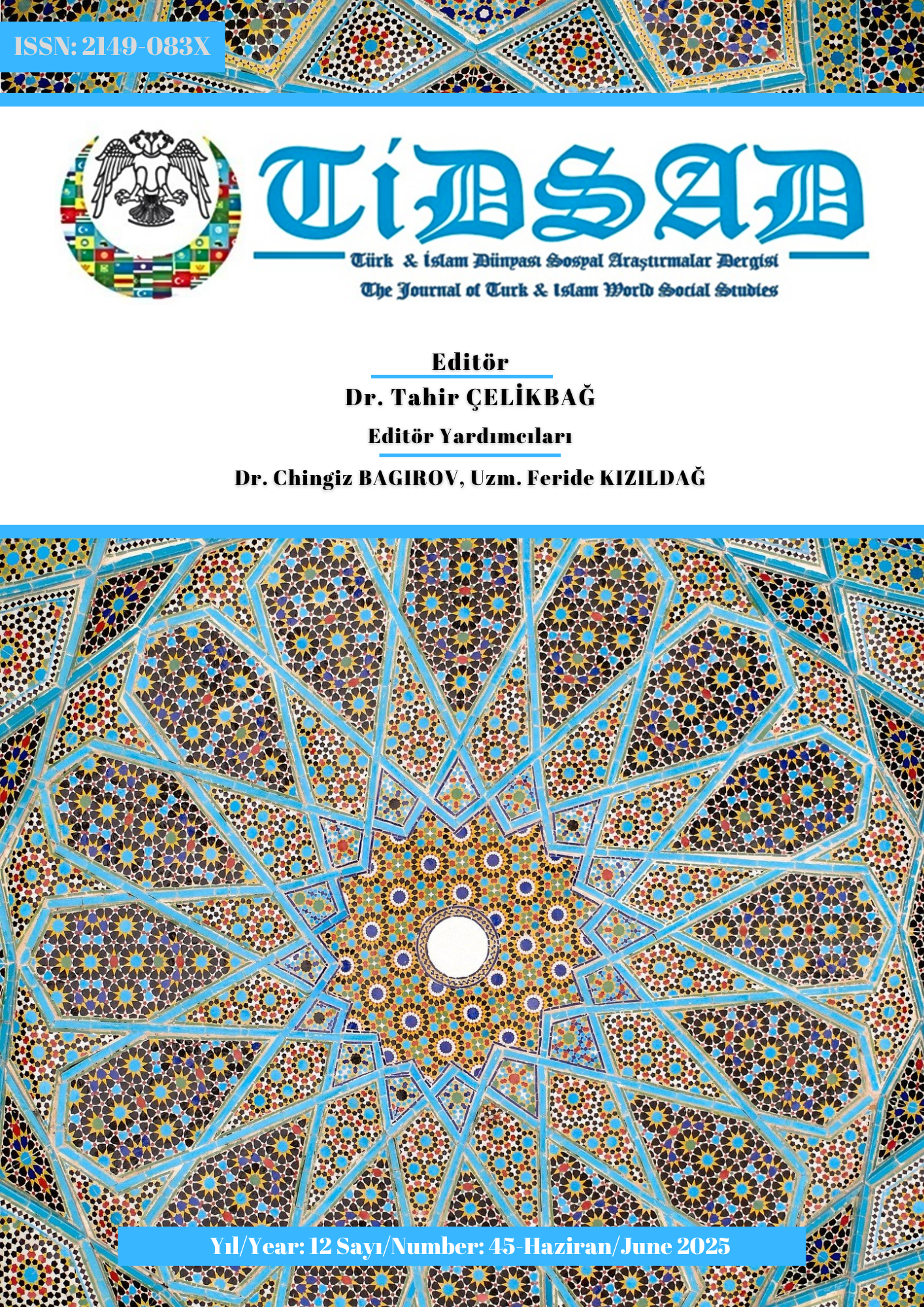Author :
Abstract
Öz: Filistin’in işgali, savaş ve Filistinlilerin yerinden edilme deneyimleri, şiirde ele alınan konulardan olmuştur. Filistinli çocukların, kadınların ve masum sivillerin savaşın yıkıcı etkilerine maruz kalışı, birçok şair için hem bir ağıt hem de bir direniş çağrısı haline gelmiştir. Suudi Arabistan’da yetişmiş şairlerden Abdurrahman Salih el- Aşmâvî de Filistin konusunu şiirlerinde ele alan şairlerden biridir. Filistinli bir erkek çocuğunun şehit edilişini anlattığı اجلس يا رامي (İclis Ya Râmî) adlı şiirde bir babanın oğlunu koruma çabası ve savaşın masum siviller üzerindeki yıkıcı etkisini ele almaktadır. Şair, bireysel bir trajediyi kolektif bir mücadeleye bağlayarak, savaşın ve işgalin toplum üzerindeki yıkımını sanatsal bir dille ortaya koymaktadır. Bu makalede, söz konusu şiiri hem bireysel bir ağıt hem de kolektif bir direniş çağrısı olarak incelenmekte ve şiirde kullanılan anlatım teknikleri ile ideolojik alt metinleri detaylı bir biçimde analiz edilmektedir.
Keywords
Abstract
Abstract: The occupation of Palestine, the war and the experiences of displacement of Palestinians have been the subjects of poetry. For many poets, the exposure of Palestinian children, women and innocent civilians to the devastating effects of war has become both a lament and a call for resistance. Abdurrahman Salih al-Ashmawi, one of the poets who grew up in Saudi Arabia, is one of the poets who addressed the Palestinian issue in his poems. In the poem اجلس يا رامي (Ijlis Ya Râmî), in which he describes the martyrdom of a Palestinian boy, he deals with a father's effort to protect his son and the devastating effect of war on innocent civilians. By linking an individual tragedy to a collective struggle, the poet reveals the destruction of war and occupation on society in an artistic language. This article examines the poem as both an individual lament and a call for collective resistance, and analyses the narrative techniques and ideological subtexts used in the poem in detail.





